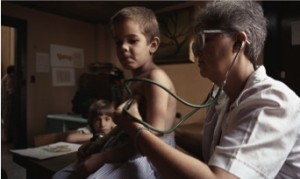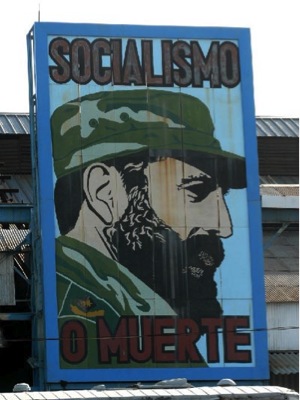The Relationship between Liberty and Social Justice in Cuba
March 1, 2012 by admin
In many of the revolutionary governments in Latin America, there have been remarkable advancements in the welfare and social condition of the population through policies and programs that increase access to education, employment, healthcare, housing, and nutrition. With further study, it seems that these achievements in social justice come at a price to the population – the restriction of democracy and political liberties such as the freedom of expression, association, peaceful assembly and movement. Social justice, based on the principles of equality, solidarity, and economic egalitarianism, is implemented at the expense of democracy and liberty. Democracy and liberty, based on the principles of equality before the law, individualism, and economic liberalization, is implemented at the expense of social justice. What explains this seemingly inverse relationship between liberty and social justice and is it possible for both to coexist? How is this question further complicated by the competing visions of democracy particularly between direct and representative democracy?
In the case of Cuba since 1959, the revolution has achieved rural land and urban housing reform, universal healthcare and education up to the university level, a high literacy rate, and greater economic egalitarianism. Agrarian reform brought the distribution of land to thousands of landless small farmers. Urban reform brought the reduction of rent for tenants, opportunities of home-ownership, housing construction in marginal shantytowns, and investment in employment opportunities. In 1959, 45% of primary school children did not attend school and 23% of the population over 10 years old was illiterate. The National Literacy Campaign reduced the illiteracy rate from 23% to 4% in the space of one year. “In 1980, 98.8% of the children 6-11 were attending primary schools. Enrollments in secondary education also climbed from 14% in 1960 to a high of 90% in 1990…Enrollments in higher education increased from a low of 7% in 1970 to a high of 21% in 1990” (Uriarte, 11). In healthcare, the infant mortality rate dropped from 35 deaths for every 1,000 live births in 1959 to 7.2 deaths per 1,000 live births in 1999. The life expectancy of Cubans has increased and Cubans die of diseases that cause the death of persons in developed nations such as heart disease, cancer and strokes, rather than the infectious diseases that are the most prevalent causes of death across developing nations (Uriarte, 10). The Cuban government has also implemented state-backed social security, retirement benefits, disability pensions, social assistance benefits, and subsidized food, rent, mortgage, and utilities. By 2000, the total social expenditures accounted for 35% of the nations GDP. It is clear that Cuba has its priorities in the social welfare of the population, however this social justice may come at a cost.
According to Amnesty International, which published Restrictions on Freedom of Expression in Cuba in 2010, the Cuban government suppresses freedom of expression, association and peaceful assembly through harassment, intimidation, arbitrary detention and criminal prosecutions by the Committees for the Defense of the Revolution (CDR), government officials and law enforcement. The state has a monopoly over all forms of media including restrictions on access to internet websites and blogs critical of the government, thus there is no freedom of the press and freedom of information. There is no democracy in Cuba due to the existence of one official political party – the Cuban Communist Party (PCC). All of these restrictions on political liberties are justified as the protection of national security.
Which is more important for society – liberty or social justice? Many members of impoverished populations would not hesitate to give up their liberties to have access to food, shelter, education, and healthcare because they perceive liberty alone as useless if one is malnourished and cannot provide for their family. Members of the middle and elite classes would never sacrifice their political liberties as they have already meet the needs for survival and comfort. I would argue that both liberty and social justice must complement one another in society. True liberty cannot exist without social justice and vice-versa. In other words, is there really democracy in the United States when law enforcement respond to peaceful protestors with violence and repression as is the case with student protests in universities and the Occupy movement?
Works Cited
Uriarte, Miren. Cuba: Social Policy at the Crossroads: Maintaining Priorities, Transforming Practice. An Oxfam America Report. 2002, pp. 6-12. February 2012.
Amnesty International. Restrictions on Freedom of Expression in Cuba. 2010
One Response to “The Relationship between Liberty and Social Justice in Cuba”
Leave a Reply
You must be logged in to post a comment.



life changes
» The Relationship between Liberty and Social Justice in Cuba CUBAN TRANSITIONS